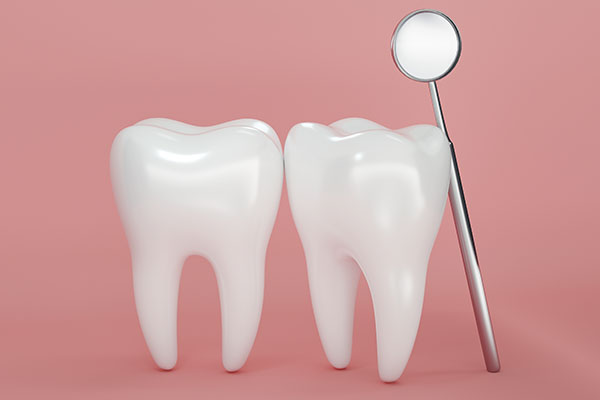What to Expect When Getting Digital X-rays From a General Dentist

Everyone should visit the general dentist twice a year. At these visits, the dentist can catch any oral health issues and treat them before they become more serious. During the visits, usually once a year, you will need x-rays to check on the parts of your mouth that your dentist can’t see with the naked eye.
When completing your routine visit to your dentist, it may be necessary to have X-rays done. The procedure for capturing X-ray candid’s of your pearly whites is relatively simple and does not require any special preparation. Here is what you can expect when getting digital X-rays from your dentist.
What are X-rays?
Dental X-rays serve a variety of purposes surrounding gum and tooth health. The two main types of X-rays are intraoral and extraoral. Intraoral refers to the X-ray film inside the mouth, and extraoral refers to the X-ray film outside the mouth. There are a couple of different types of X-rays that general dentists commonly use. These include:
- Periapical X-rays (intraoral): These X-rays are to capture a complete picture of the tooth and its internal structures and are usually taken when a patient is experiencing oral issues.
- Bitewing X-rays (intraoral): This type of X-ray is the one that patients complete annually and can help evaluate bone structure health.
- Panoramic X-rays (extraoral): Usually taken about every five years, these X-rays outline the internal structures in a patient’s mouth. They may be necessary for preparation for an orthodontic appliance or before a wisdom tooth extraction.
- Occlusal X-rays (intraoral): This type of X-ray provides information about the roof or floor of a patient’s mouth and can check for issues with the jaw, impacted teeth, extra teeth, or abnormal growths.
If you have any questions about the process of x-rays, your dentist will be more than happy to answer them.
What can dental X-rays detect?
You may be experienced with getting X-rays, but what do they actually detect? Dental X-rays are used to detect different things in adults and teens. In adults, they are used to identify decay, show bone loss due to gum disease, and assist in preparation for orthodontic appliances. In teens, they are used to monitor the teeth for decay, check the development of wisdom teeth, and reveal developmental abnormalities. In short, a lot can be learned with this simple procedure.
What do you need to do during an X-ray?
As a patient, X-rays are fairly simple. Any object containing metal, such as eyeglasses or jewelry will likely need to come off prior to the X-ray. Depending on the part being examined, you may need to lie down, sit, or stand up. A lead apron will be placed over your chest, and a thyroid collar may be used to protect the neck.
Electronic sensors, which have a slim wire that connects them to the computer, will be placed in your mouth. Then, X-ray beams will be sent to the sensor through the tooth. The images are then displayed on the connected computer and can be used for diagnostic purposes.
Are dental X-rays safe?
Dental X-rays are safe but do require low levels of radiation exposure. The tools and techniques used in X-rays are designed to limit radiation exposure. Lead aprons and thyroid collars used in this procedure are designed to shield the abdomen and thyroid from exposure. Every precaution is taken to safeguard patients and make sure radiation exposure is as low as possible.
Does insurance cover x-rays?
As with any dental procedure, you should always call your dental insurance provider and find out if you will be expected to pay any out-of-pocket expenses. Typically, your routine x-rays are listed as preventative care, and most of this type of care is covered by your insurance.
Depending on your specific coverage, you may have to pay a copay or money towards your deductible, but mostly preventative care is covered.
Talk to your dentist
Your general dentist can explain any procedures you may need at the office. They are there for you to help answer any questions you have about your oral health and what is required to keep it in check.
Visiting your dentist is one of the most beneficial ways to be sure you keep up your oral health for as long as possible. Do yourself a favor and maintain a relationship with your dentist. Your teeth and gums will appreciate your dedication and keep you safe from a serious illness for a lifetime.
Request an appointment here: https://aestheticsmiles.com or call Aesthetic Dentistry of Noe Valley at (415) 493-9143 for an appointment in our San Francisco office.
Check out what others are saying about our dental services on Yelp: General Dentist in San Francisco, CA.
Related Posts
Visiting a general dentist for routine cleanings is essential for preventing common dental problems such as tooth decay or gum disease. While brushing and flossing every day can help remove a majority of bacteria and plaque from the teeth, it is impossible to completely remove all buildup. Frequently scheduling dental cleanings makes it possible to…
Fixing a broken tooth right away is important. This dental damage may seem like nothing more than a cosmetic problem, but it can lead to terrible consequences. Seeing a dentist sooner rather than later can provide immediate relief. If you want to find out the treatments for a broken tooth and its complications, here are…
In general dentistry, toothaches are defined as any pain or ache in or around a tooth. While modern dentists have a thorough understanding of the causes and treatments for toothaches, people experiencing them may be frustrated by the discomfort. Those with a toothache may feel sharp or dull pain and sensitivity to temperature or chewing.In…
Why is general dentistry important? Taking care of your teeth can reduce painful problems like abscesses, gingivitis, cavities and additional issues. Taking care of your teeth the right way takes consistency and knowledge of oral hygiene. Stronger teeth make for a brighter and happier smile!In this article, we will look at five tips that will help in…


